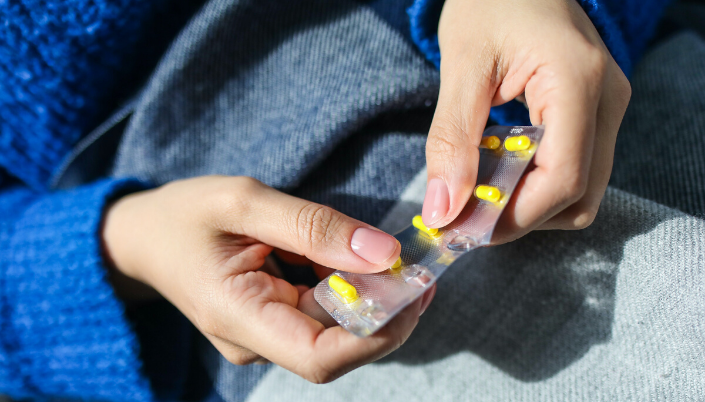

Travelling Abroad With Medication? Beware!
02 Aug 2018 by Olga Brighton
Are you one of the many travellers unwittingly breaking the law each year when travelling with medication?
Wherever you’re travelling, the chances are, your holiday destination will have laws that are very different. According to the Foreign & Commonwealth Office (FCO), it is not uncommon for medication that is acceptable in some countries, to be classified as ‘controlled drugs’ in others. The BBC recently warned holidaymakers to check travel advice on medication they plan to take abroad to avoid being fined, or worse still, arrested and imprisoned. Even seemingly harmless items we can purchase over the counter here can get you into deep water in some countries. For example some cold remedies are banned in Japan, and Zambia won’t allow Benylin cough syrup through its borders.

Examples of what can be deemed as ‘controlled medicines’ overseas can include medication such as painkillers, for example, diamorphine, and some medicines containing hormones, such as anabolic steroids.
Here is some practical advice on this little known risk facing travellers.
What should you do if taking prescribed medication with you?
Plan well ahead
Different countries have different rules and regulations on permitted medicine and the maximum quantity you can take in. Some countries, like India and Turkey publish lists of medicines they won't allow into the country.
The best thing to do is speak to your GP, or practice nurse about where you’ll be going at least 4-6 weeks before you travel, so they can advise whether special arrangements are required for your particular medication.
Read also: Your Quick Guide to Travel Insurance and Pre-existing Medical Conditions
You can also get information about the rules that apply to the country you are visiting from their local foreign embassy. In addition, if its more general advice and guidance on your intended destination, the Foreign and Commonwealth Office website provides up to date country by country information on health, safety and security.
How to travel with your medication

- Always carry medication and medical equipment (eg: needles) in their original, labelled packages.
- Carry a copy of your prescription and ideally a letter from your GP with details of your health condition/s and your medication, including the generic name of the medicine (not just the brand name). As well as helping you through Border Controls, this documentation will be invaluable if you need to arrange replacement medication for any reason while abroad.
- Carry at least 3 days’ supply of essential medication in your hand luggage in case your baggage is delayed. Note that you are allowed to carry more than 100ml of essential medicines in your hand luggage, as long as you have supporting documentation from your doctor.
- Pack spare medication in your checked-in luggage too (with copies of the supporting prescription), in case you lose your hand luggage.
- Don’t be caught out if you have medication that requires temperature control (eg: below 25C) if travelling to a hot country where temperatures could soar above the recommended range. Your doctor or local chemist should be able to provide guidance here.
- You can help keep your medicine cool by using a thermos flask, or cool bag with ice packs.
Read also: Medical and Health Insurance
Wherever you are going, stay safe, healthy and don’t fall foul of foreign laws. Do your research well before you travel and don’t forget to buy decent travel insurance. Always fully declare any pre-existing medical conditions when purchasing your travel insurance as it could invalidate your policy or any claim you may have if you don’t follow their requirements.
Choose Globelink, providing quality travel insurance for over 20 years, wherever you live in the EU. Get an instant online quote, or call (UK) +44 1353 699 082.
We accept

